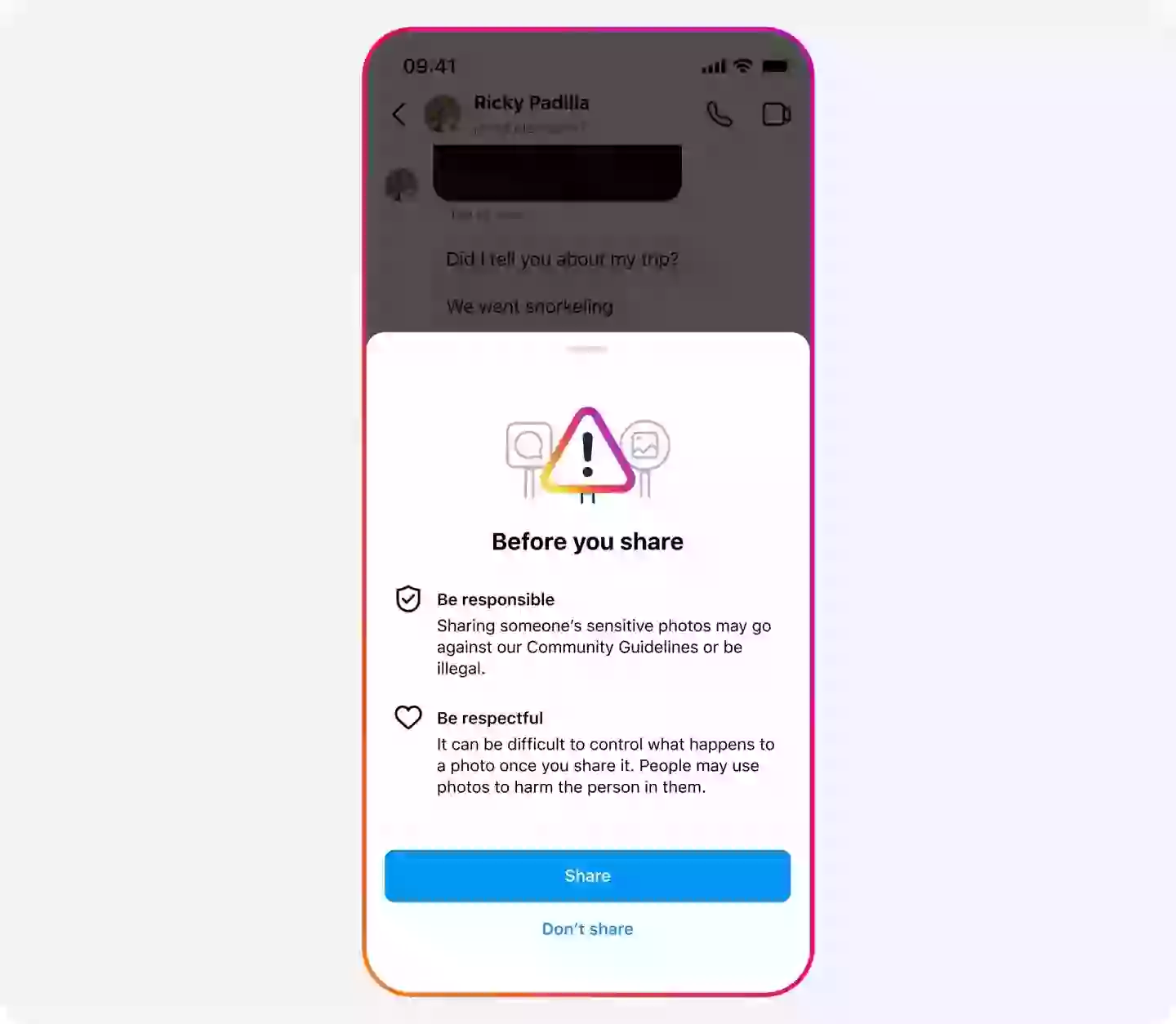
Meta is clamping down on those who exploit its apps with ill intentions.
The new Instagram barriers will make it more difficult for 'scammers and criminals' to interact with underage individuals on its photo-sharing app.
The Mark Zuckerberg-founded company said it is testing new features that it hopes that will 'protect young people from sextortion and intimate image abuse'.
Advert
One of the features that'll be rolled out is a nudity protection feature in Instagram DMs. This launch hopes to shield teen users on the app from cyberflashing by putting nude photos behind a safety screen.
Essentially, images flagged as nudity with Meta's technology will be automatically blurred.

However, users will have the choice of whether they want to view such images or they can flag them for indecent content.
Advert
'[A]ny message requests potential sextortion accounts try to send will go straight to the recipient’s hidden requests folder, meaning they won’t be notified of the message and never have to see it,' Meta wrote.
According to the billion-dollar company, the feature is powered by on-device machine learning, so the company will work within end-to-end encrypted chats.
Additionally, safety messages will also be sent to people who wish to send and receive graphic content to encourage them to think twice before doing so.
Senders will also be reminded that they can unsend photos.
Advert
'This feature is designed not only to protect people from seeing unwanted nudity in their DMs, but also to protect them from scammers who may send nude images to trick people into sending their own images in return,' Meta said.

'Nudity protection will be turned on by default for teens under 18 globally, and we’ll show a notification to adults encouraging them to turn it on.'
The tech giant is encouraging those who might be about to fall victim of sextortion, for instance may be being blackmailed or have their photos held for ransom, or those who feel they've been scammed, to come forward and report the case.
Advert
On the back of the new update, John Shehan, senior vice president, National Center for Missing & Exploited Children (NCMEC), said: 'Companies have a responsibility to ensure the protection of minors who use their platforms. Meta’s proposed device-side safety measures within its encrypted environment is encouraging.
'We are hopeful these new measures will increase reporting by minors and curb the circulation of online child exploitation.'